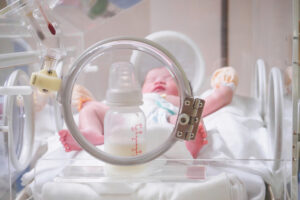British based giant Smith & Nephew recently issued a voluntary recall on a component of one of its all-metal artificial hip systems. The all-metal artificial hip system recall comes after an unusually high number of patient problems.
Patients who had this recalled metal-on-metal hip implant system experienced fractures, infections, and dislocations. One of the products Smith & Nephew is specifically recalling is the optional meal liner, or cup, which is a component of its R3 Acetabular System.
Unfortunately Smith & Nephew was warned by the FDA on December 21, 2010 regarding issues that were necessary for the company to take care of. The warning letter addressed the R3 Acetabular System. The letter was sent to Mr. John Buchanan, Chairman of Smith & Nephew and was from the director of Office of Compliance of the FDA, Steven Silverman.
This letter addressed that the FDA found that Smith & Nephew manufactures R3 Ceramic Acetabular Systems and this system falls under section 201(h) of the Federal Food, Drug, and Cosmetic Act, 21 U.S.C. 321(h) saying that these products are devices and are intended for use in the diagnosis of disease or for curing, mitigating, treating or preventing disease.
The FDA did a thorough inspection in Tuttingen, Germany finding that these specific devices were “adulterated within the meaning of section 501(h) of the Act, in that the methods used in, or the facilities or controls used for, their manufacture, packing, storage, or installation are not in conformity with the Current Good Manufacturing Practice requirements of the Quality System regulation found in Title 21, Code of Federal Regulations, Part 820.”
The FDA found more violations than this and continued in the warning letter to Smith & Nephew, addressing some violations, although it was not all inclusive of every issue they discovered. One of such violations was:
“Failure to adequately ensure that when the results of a process cannot be fully verified by subsequent inspection and test that the process shall be validated with a high degree of assurance and approved according to established procedure, as required by 21 CFR 820.75(a). For example: a) There was no process validation study to support the minimum and maximum settings being used on the (b)(4) for pressing different sized Titanium rings onto various ceramic inserts for the R3 Ceramic Acetabular Liner.
b) Bioburden and endotoxin testing were not performed for the Tibia Base Plates as required by the performance qualification studies for the (b)(4) and (b)(4) Washers used during R3 Ceramic Acetabular Liner production.”
Les Sprinkle, the Senior Vice-President of Global RA/QA sent a response in regards to this violation to the FDA on August 11, 2010 that the FDA did not find adequate. The FDA said the company did not provide testing protocol or statistical rationale to support their analysis.
Another violation the FDA found by Smith & Nephew was:
“Failure to establish and maintain adequate procedures to verify or validate corrective action to ensure that such action is effective and does not adversely affect the finished device, as required by 21 CFR 820.100(a)(4). For example: According to the firm’s management, based upon the investigation of the cause of irradiation batches receiving doses below the specified minimum dose requirement (due to incorrect packaging and product density), in May of 2009, the firm implemented new packaging procedures and retrained employees. Irradiation batches receiving doses below the specified minimum dose requirement have recurred after implementation of the cited corrective action (e.g., Irradiation Batch Nos. (b)(4) and (b)(4)).”
The FDA also found that Smith & Nephew failed to maintain and establish adequate procedures in order to control product that does not conform to specified requirements—a requirement under 21 CFR 820.90(a). An example that was found at Smith & Nephew was that no evaluation was conducted to determine the need for an investigation of irradiation Batch Nos. The batches were nonconformance and no investigation went into that.
The next listed violation on the FDA’s warning letter to Smith & Nephew was: “Failure to document the justification for use of nonconforming product and the signatures of the individual(s) authorizing the use, as required by 820.90(b). For example: Irradiation Batch Nos. (consisting of a variety of products including R3 Ceramic Acetabular Liners) (b)(4) and (b)(4) that failed to meet specified minimum dose requirements were released and distributed. No documented justification (including the signature of the individual(s) authorizing the use) for the use of this nonconforming product was provided during the inspection.”
The last violation the FDA mentioned inside this warning letter was: “Failure to establish procedures for changes to a specification, method, process, or procedure, as required by 21 CFR 820.70(b). For example: Changes were made to the minimum and maximum settings in the (b)(4) press for pressing different sized Titanium rings onto various ceramic inserts for the R3 Ceramic Acetabular Liner without undergoing a formal review and approval process per Specifications (b)(4) and (b)(4).”
The FDA warned Smith & Nephew, saying that they should take immediate action to correct all of these violations.
Flashforward almost two years and we are here with a voluntary recall of a component of the R3 Acetabular System after a high volume of patients suffered and experienced pain. A review conducted found that 1.6 patients with the Smith & Nephew all metal hip implant needed revision surgery each year.
Metal on metal hip implants continue to reflect dangerous results for patients who have them implanted.
If you have received a hip implant and are suffering problems or have had a revision surgery, please feel free to contact our attorneys at Childers, Schlueter & Smith for a free and private case consultation. We will be glad to help answer your questions and see if we can help.










Comments for this article are closed.